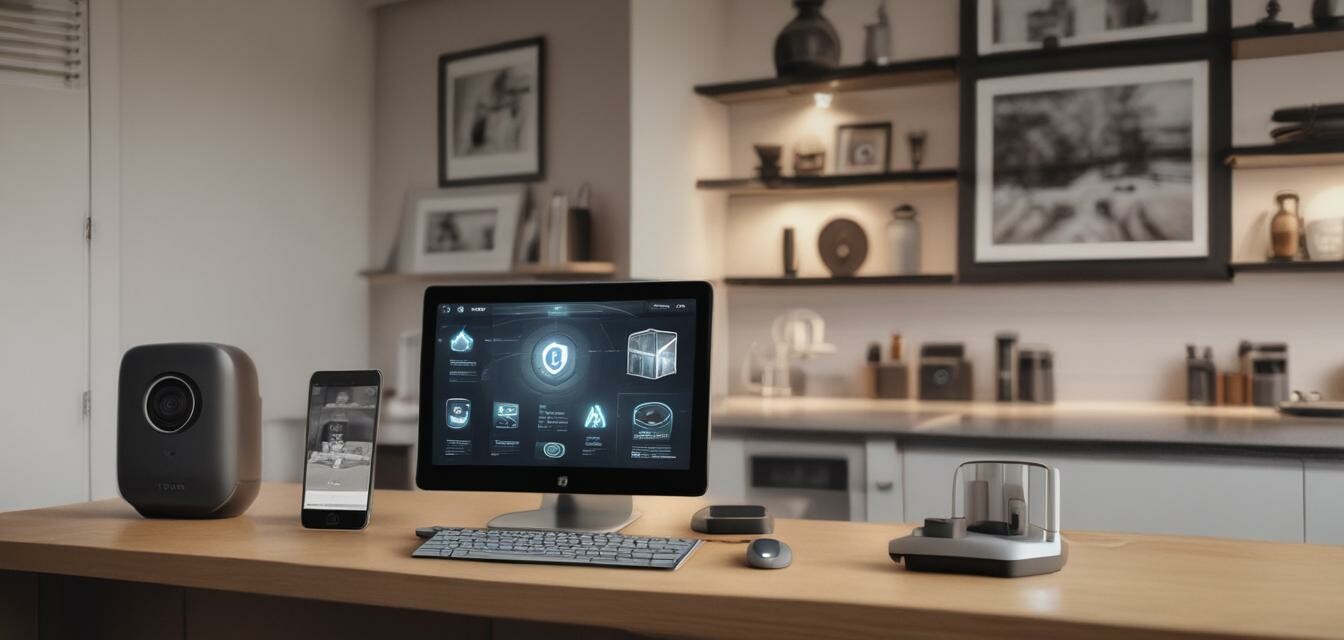
Smart Home Security Tips for New Homeowners
Key Takeaways
- Implement a layered security approach combining various devices.
- Ensure proper installation of all systems for maximum effectiveness.
- Regularly maintain and update your security technology.
- Educate yourself about smart home security features available.
- Involve family in security measures for increased awareness.
Moving into a new home is an exciting journey, but it's essential to prioritize your security from day one. Smart home security systems can help protect your property, but knowing how to set them up effectively is crucial. This guide will provide you with practical tips to establish a robust security foundation in your new home.
The importance of smart home security
Smart home security systems utilize advanced technologies like cameras, sensors, and automated systems to enhance your home's protection. As a new homeowner, implementing a smart security setup not only secures your property but also gives you peace of mind.
Start with the basics: securing your entrances
One of the primary points of entry for intruders is through doors and windows. Here are some recommendations for safeguarding these vulnerable areas:
- Install smart locks: These locks can be operated remotely and offer keyless entry options for convenience.
- Use window sensors: Detect any unauthorized openings, providing instant notifications to your mobile device.
- Reinforce doors and windows: Consider adding deadbolts and window film for enhanced protection.
Implement a layered security approach
A layered security approach combines various devices and methods to protect your home more effectively. Below is a breakdown of essential components:
| Security Component | Description | Benefits |
|---|---|---|
| Smart Cameras | Monitor your property in real-time. | Provides visual evidence and deters potential intruders. |
| Motion Sensors | Detect movement in designated areas. | Alerts you to unusual activity immediately. |
| Alarm Systems | Siren alerts for detected threats. | Can scare off potential burglars quickly. |
| Home Automation | Integrate all devices into a single system. | Allows remote control and monitoring from anywhere. |
Educate yourself on smart security features
Understanding the features of your smart home security devices can help you maximize their effectiveness. Here are some savvy solutions you might consider:
- Remote Monitoring: Make sure you can access your security system via a smartphone app.
- Geofencing: Set up alerts for arriving and leaving your home.
- Two-factor Authentication: Enhance security for your smart home accounts.
Regular maintenance is crucial
Once you have installed your security system, it requires regular maintenance to remain effective. Consider the following:
- Check batteries: Ensure that all devices are charged and functioning correctly.
- Update software: Regular updates can patch vulnerabilities and improve security features.
- Test all equipment: Regular testing ensures everything works correctly when needed.
Involve your family in security measures
Establishing a secure home is a collective effort. Here’s how you can involve your family:
- Discuss Security Plans: Share security plans and protocols with your family.
- Practice Drills: Conduct home safety drills, especially with children.
- Assign Responsibilities: Designate family members for specific security tasks.
Conclusion
Building a strong security foundation in your new home is not just a choice—it's a necessity. By using smart home security systems and following these tips, you can enhance the safety of your property and enjoy your new living space with peace of mind. For more tips on enhancing your home security, check out our Tips & Best Practices section.
Pros
- Comprehensive protection
- Peace of mind with remote access
- Customizable security features
Cons
- Initial setup can be challenging
- Potential cost of devices
- Reliance on internet connectivity
